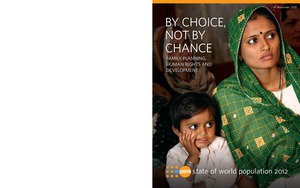The state of world population 2012. By choice, not by chance. Family planning, human rights and development
"Family planning is a human right. Yet today some 222 million women in developing countries are unable to exercise that right because they lack access to contraceptives, information and quality services or because social and economic forces prevent them from taking advantage of services even wh...
| Institution: | ETUI-European Trade Union Institute |
|---|---|
| Format: | TEXT |
| Language: | English |
| Published: |
New York
2012
UN |
| Subjects: | |
| Online Access: | https://www.labourline.org/KENTIKA-19126011124919442939-The-state-of-world-population-.htm |
| _version_ | 1771659897717391363 |
|---|---|
| collection | Library items |
| description | "Family planning is a human right. Yet today some 222 million women in developing countries are unable to exercise that right because they lack access to contraceptives, information and quality services or because social and economic forces prevent them from taking advantage of services even where they are available." |
| format | TEXT |
| id | 19126011124919442939_3461119c9d4e4eceb78c0c692214f19b |
| institution | ETUI-European Trade Union Institute |
| is_hierarchy_id | 19126011124919442939_3461119c9d4e4eceb78c0c692214f19b |
| is_hierarchy_title | The state of world population 2012. By choice, not by chance. Family planning, human rights and development |
| language | English |
| physical | VII, 128 p. Digital |
| publishDate | 2012 |
| publisher | New York UN |
| spellingShingle | demographic aspect family responsibilities human rights population statistics The state of world population 2012. By choice, not by chance. Family planning, human rights and development |
| thumbnail | https://www.labourline.org/Image_prev.jpg?Archive=100541392872 |
| title | The state of world population 2012. By choice, not by chance. Family planning, human rights and development |
| topic | demographic aspect family responsibilities human rights population statistics |
| url | https://www.labourline.org/KENTIKA-19126011124919442939-The-state-of-world-population-.htm |

